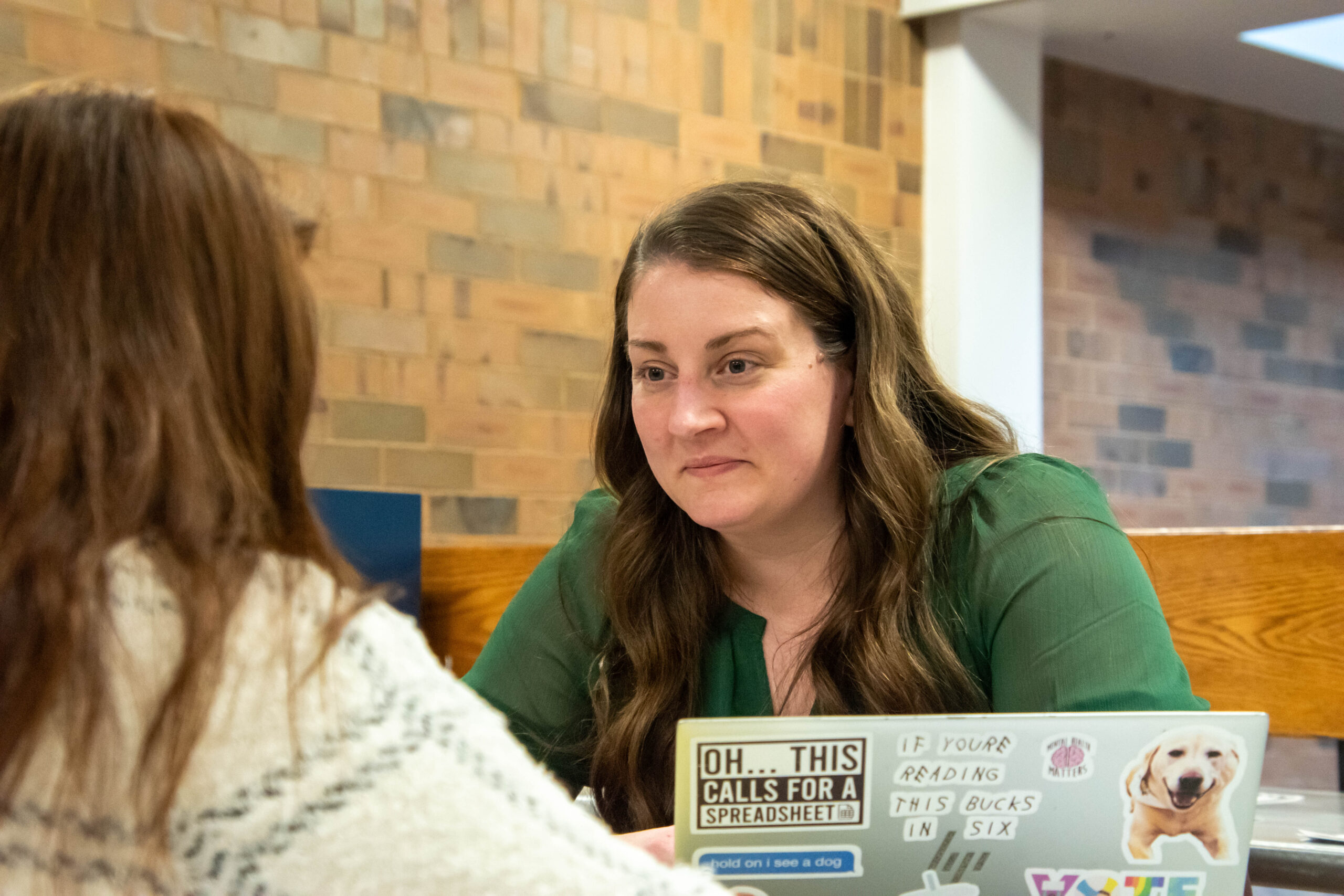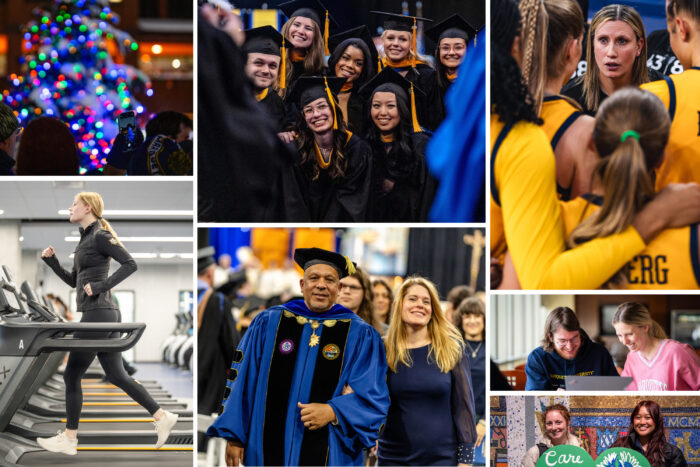Senior Maria Jaramillo had just completed her first tax preparation course. Prior to that, she’d never even done her own taxes, let alone anyone else’s.
Yet after a semester of learning the basics and a series of rigorous pre-clearance exams, Maria sat in front of a client, walking through the corrections she needed to make to her income tax filings.
“It’s a full circle moment; you’re taking a lot of your classroom knowledge and applying it to real experiences in a way that makes you feel fulfilled,” says Jaramillo, an accounting and finance major.
This experience was part of the Volunteer Income Tax Assistance program. Every year, Marquette accounting students trained by the IRS and the Wisconsin Department of Revenue prepare income tax returns for free on behalf of people who cannot afford an accountant. Students spend several hours per week in the two months leading up to the April 15 tax filing deadline either meeting clients over the phone or answering their questions in person at Milwaukee Area Technical College’s Oak Creek location.
Rachel Detert, assistant professor of practice in accounting, serves as the group’s site coordinator, reviewing students’ work for accuracy. Detert, a 2010 Marquette graduate, spent 11 years in public accounting before returning to her alma mater. The chance to mentor budding CPAs was too tempting an opportunity for Detert to pass up.
“During the pandemic, I took a hard look at what I really liked about working in public accounting, and that is the chance to be involved in other people’s growth and career development,” Detert says. “But once you start to move into a manager role, you’re doing less one-on-one work and more project management and trying to acquire new business. I missed being able to develop my team, and teaching at Marquette gives me a chance to do that.”
Students must complete Detert’s Individual Income Taxation class before they can sign up. Jaramillo, who volunteered in 2023, estimates she completed about a dozen tax returns in a little over two months of volunteering; the Marquette group finished more than 100 of them.
Clients come to the clinic from many different walks of life. Some are MATC students, some are retirees; all of them make less than $64,000 per year. While most of the tax forms are straightforward, the Marquette students help clients identify value that most people without an accountant miss. Detert cites the Wisconsin Homestead Credit, which can provide tax savings of up to $1,100 to low-income renters or homeowners, as an example of why even those with simple finances can benefit from having an accountant on their side.
“Some people don’t know the tax consequences of what they have or what benefits are out there for them,” Detert says. “That homestead credit is unique to Wisconsin. Where would you find that? You’d have to go deep into the state Department of Revenue website or pay a few hundred dollars to an accountant to point it out. We provide that guidance to people who might not get it or can’t afford it otherwise.”
The VITA clinic provides the kind of hands-on, community-oriented learning that has long been the hallmark of Marquette’s accounting department. U.S. News & World Report ranks Marquette as 26th on its list of the top undergraduate accounting departments. The accounting specialty in Marquette’s part-time MBA program ranks 44th.
Marquette accounting’s strong career outcomes are a major draw to the program. Over 97 percent of Class of 2022 students were either employed or in graduate school within six months of graduation. The department has strong relationships with firms of all sizes, and recently placed all its second- and third-year students in 2025 internships through the Accounting Internship Early Recruiting Program. Experiential learning they get from experiences like the VITA clinic allows them to stand out once hired.
“Producing accounting leaders is one of the things that this program prides itself on,” says Dr. Kevin Rich, chair and Horngren Professor of Accounting. “No matter what kind of accounting a student in our program might be interested in, there will be a chance to learn by doing. That’s how our students develop the leadership skills that set them apart.”
Jaramillo has already completed two internships at PwC: one as an entry-level intern and one in the specialized tax service department. She will join the firm as a tax associate after graduating. Time in a large firm, combined with the practical experience of the VITA clinic and a multi-year stint as an accounting tutor, gave Jaramillo a well-rounded resume to go with her classroom experience.
“The VITA clinic is definitely different than what I’m going to be doing next; it gave me that client-facing feel and realistic interaction that I wouldn’t have gotten in a classroom setting or at my internship,” Jaramillo says. “Working at VITA taught me the soft skills to go along with everything else.”
“Typically, the people who are higher up in the organization — managers, partners — they’re the ones communicating with clients, going over their return, and pointing out credits and savings, but that’s what the students do at the clinic. They’re taking on things that are at a leadership level before they’ve even graduated” Detert says.
Tax season concludes less than a month before Commencement. Dozens of students who learned their trade under Detert’s mentorship in the VITA clinic will graduate, taking their knowledge from the classroom to the offices of some of the world’s most prestigious firms. Whether those students become CPAs or not, they will carry with them the skills they learned while providing some much-needed help to Milwaukee residents.



